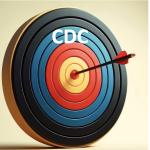It was the horrendous Tuskegee experiment that eventually led to the formation of the Institutional Review Board system, designed to protect human research part
CDC
PART 1
CDC’s Dangerous Hedge on Vaccines and Autism
What did the CDC just do to its autism page, and why is that scientifically wrong and harmful?
In June, the recently downsized CDC vaccine advisory panel voted to stop recommending flu vaccines containing thimerosal. Health and Human Services Secretary Robert F. Kennedy Jr.
When Robert F. Kennedy Jr.
There’s a secret about the modern news cycle many people don’t know: Much of it is manufactured by public relations (PR) firms trying to gin up favorable media coverage for their clients.
In a move that has stunned scientists, educators, and policy experts, President Donald Trump’s proposed 2026 federal budget outlines a series of sweeping and unpr
During my discussion with Lars this week, we discussed the severity of this year’s flu season.
A version of this article was originally published in 2016.
Over the course of my career as a science journalist I’ve learned an important but disheartening lesson: experts are allowed to mislead the public about certain health topics. One of the most egregious cases is nicotine vaping.
Join Cameron English and Dr. Chuck Dinerstein on Episode 95 of the Science Dispatch podcast as they discuss:











